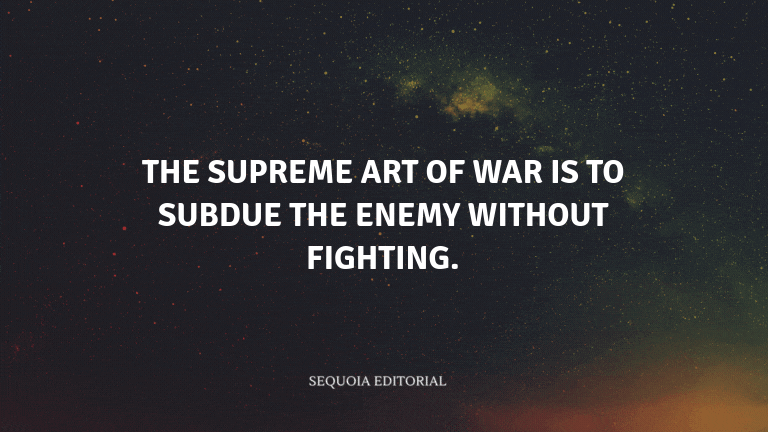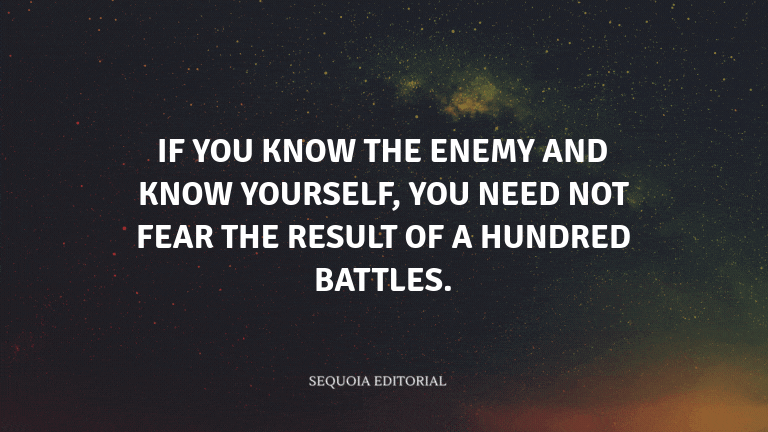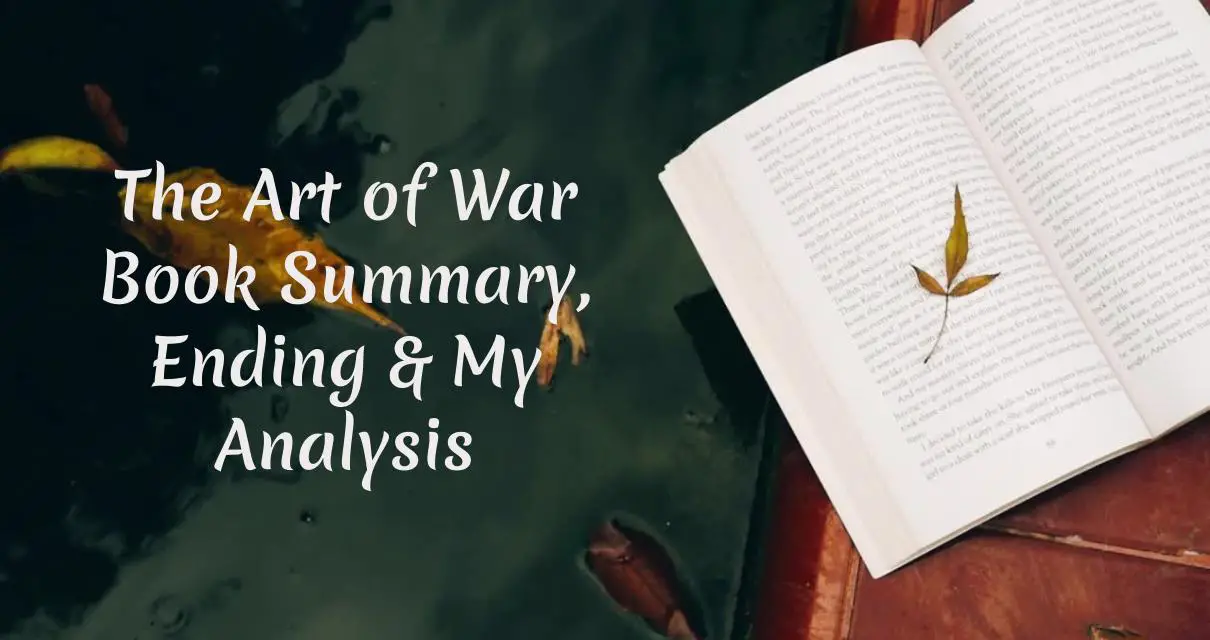The Art Of War is about the ancient Chinese military treatise attributed to Sun Tzu, a military strategist and philosopher from the late Spring and Autumn Period. This timeless classic delves into the strategy and tactics of warfare, encompassing everything from planning and decision-making to the use of terrain and manipulation of the enemy. It is considered one of the greatest works on strategy and has had a significant influence on military thinking, business tactics, and legal strategy throughout the world.
Table of Content
The Art Of War Book Summary
Sun Tzu's 'The Art of War' is a profound exploration of strategy and warfare. It begins with the assertion that war is a matter of vital importance to the state and sets out the fundamental principles that underlie successful conflict.
Throughout the book, Sun Tzu emphasizes the importance of knowing oneself and the enemy, as well as the significance of deception and intelligence gathering.
He advocates for strategic planning and highlights the role of quick and decisive action in achieving victory.
Sun Tzu discusses the five factors that lead to success in war, including the way, discipline, terrain, leadership, and management.
'The Art of War' further expounds on the specific methods of attack, using fire, spying, and the use of force, and the importance of adapting tactics to the situation at hand.
It delves into the concept of the 'unfathomable' and the 'supreme' art of war, which is to subdue the enemy without fighting.
Sun Tzu examines the use of energy, the movement of troops, and the importance of the moral law and discipline in an army.
He also discusses the use of spies and the gathering of information to gain a strategic advantage over an opponent.
Throughout the treatise, Sun Tzu emphasizes the need for flexibility in strategy and the importance of adapting to the circumstances of each battle.
The final chapters of 'The Art of War' address the use of fire in warfare, the importance of speed and the pursuit of victory, the power of adapting to circumstances, and the use of alliances.
Sun Tzu concludes with the importance of military preparedness in times of peace, suggesting that the way to avoid what is strong is to strike at what is weak.
He leaves the reader with the understanding that victory is the main goal of any military campaign, and it should be pursued with all the necessary means and strategies at one's disposal.
The Art Of War Quotes
- In the midst of chaos, there is also opportunity.

- The supreme art of war is to subdue the enemy without fighting.

- If you know the enemy and know yourself, you need not fear the result of a hundred battles.

The Art Of War Ending Explained
At the end of The Art of War, the wisdom and teachings of Sun Tzu culminate in a comprehensive understanding of strategy and warfare.
The book concludes with a final emphasis on the importance of preparation, adaptation, and the use of intelligence to secure victory in battle.
Sun Tzu's timeless lessons continue to resonate, serving as a guide not only for military success but for strategic thinking in all aspects of life and competition.
Characters in book The Art Of War
- Sun Tzu: The author and central figure, a Chinese military general, strategist, and philosopher who lived during the Eastern Zhou period. His teachings form the core of the book.
- The King: The wise ruler who seeks out Sun Tzu's counsel and depends on the general's strategies for the kingdom's success.
- The Generals: Various military leaders who put Sun Tzu's teachings into practice and engage in battles using his tactics and principles.
Key Lessons
- Know Your Enemy and Yourself: Complete awareness of your own strengths and weaknesses as well as those of your opponent is crucial for success.
- Preparation is Key: Extensive preparation before any undertaking can significantly impact the outcome in your favor.
- Flexibility is Essential: The ability to adapt to changing circumstances and to be versatile in tactics is vital for success.
- Use Intelligence and Deception: Employing spies and gathering information can provide crucial advantages, and the effective use of deception can lead to victory.
- Speed is Decisive: Acting swiftly and decisively can be the difference between success and failure.
- Win Without Fighting: The best victory is achieved when opposition is overcome through strategy and influence rather than direct conflict.
My Personal Opinion
Is The Art of War worth reading? I would say yes, I found it to be a thought-provoking and insightful work.
I was fascinated by the depth of strategic wisdom and the universal applicability of Sun Tzu's principles. However, I felt that some of the advice might be too aggressive for modern applications outside of warfare. This book is a must-read for anyone interested in strategy, leadership, or history.
I would recommend it to military professionals, business strategists, and leaders seeking to understand the fundamental principles of success in any competitive arena.

